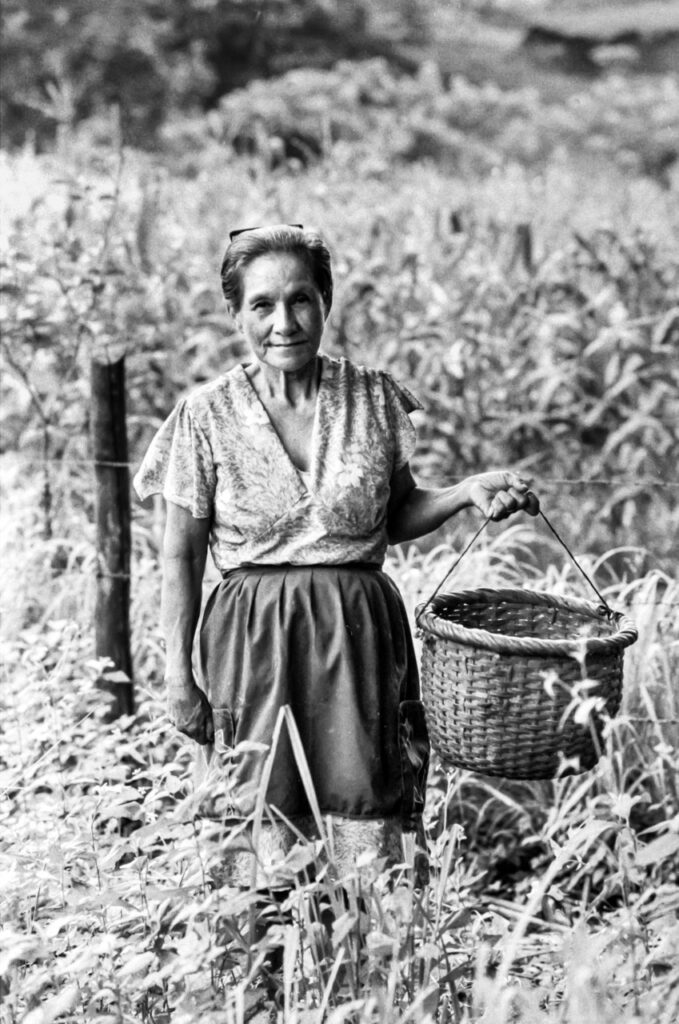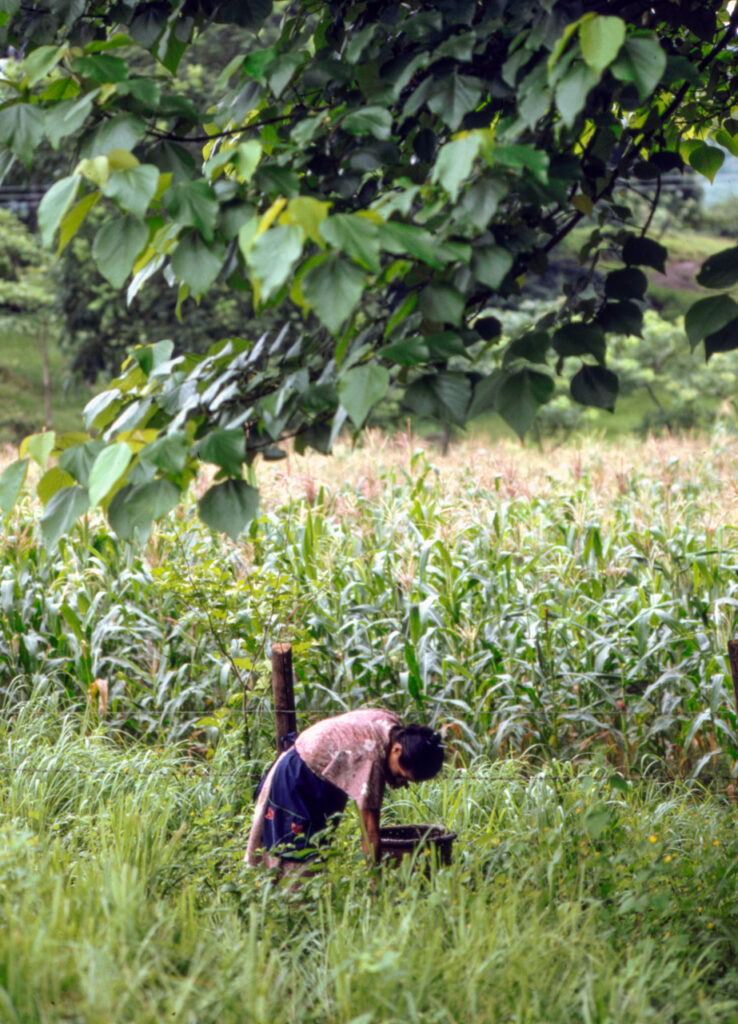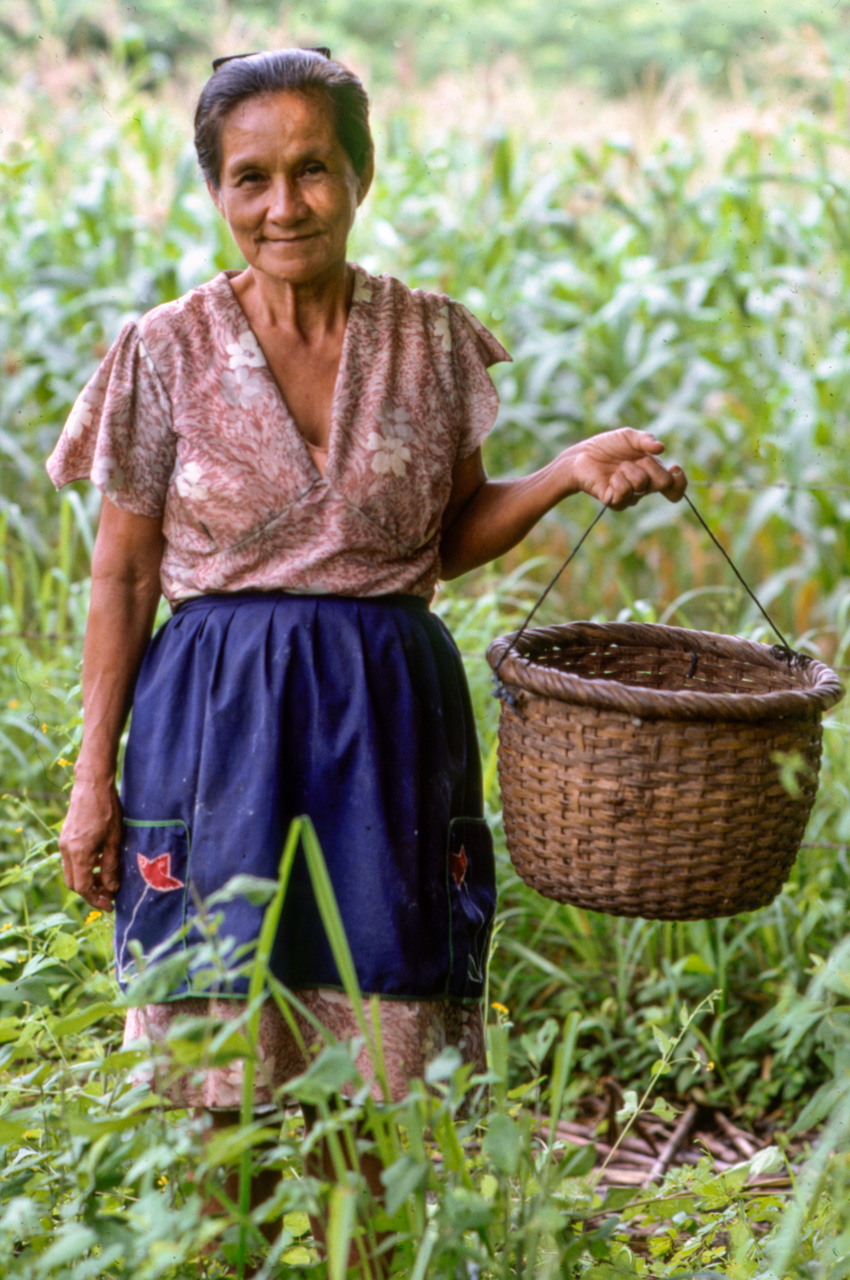Excerpt from Participatory communication in development: integrating women into forestry projects in Costa Rica
A research project conducted in 1987 funded by the Inter-American Foundation, Ibero-American Studies Program of the University of Wisconsin and the Tropical Agricultural Research and Training Centre, Costa Rica.
With the increase in reforestation throughout the country and the resulting need for seedlings, collecting tree seeds appears to be an potential source of employment. Nevertheless, families in the Hojancha area are not accustomed to collect them.
The case of Doña Pacha is an example of an elderly woman who has made considerable family income by collecting Gmelina seeds (Figure 21). In early 1987, the husband of Doña Pacha went to speak with a large landowner who had a Gmelina plantation close to Don Vicente’s. The landowner agreed to hire Don Vicente’s wife to collect the Gmelina seeds.

Doña Pacha is a 60‑year‑old woman with a remarkable amount of energy. She has 10 living children after having 14 pregnancies. Only two children remain in the house and two grandchildren. The family is quite poor and grow a little corn and raise a few cattle on a 2.8 hectare farm. She is active on the farm and has received a course from INA in fertilization and corn cultivation.
Doña Pacha has planted a number of fruit trees around the house both for family and animal consumption. Project workers from CORENA came to the farm and planted a small parcel of Gmelina. The family did not help with the planting. The parcel will be a future source of income for the family for its seeds, fuelwood, posts and timber.
Doña Pacha and her 12‑year‑old grandson collect Gmelina seeds from 5:30 a.m. To 9:00 a.m. from late may to early july. She is paid 150 colones per cajuela and between the two of them can collect up to four cajuelas per day. The seeds fall to the ground and to collect them she merely needs to stoop and put them in the basket (Figure 22). While she is collecting her 15‑year‑old daughter tends the house.

Over a six-week period in 1987 Doña Pacha earned over 17,000 colones. She uses the money she earns from the collecting to buy food for the family and to fatten up the pigs she raises and sells. Doña Pacha says she loves the work in the “campo.” She likes to get out of the house and involve herself in farm activities.

